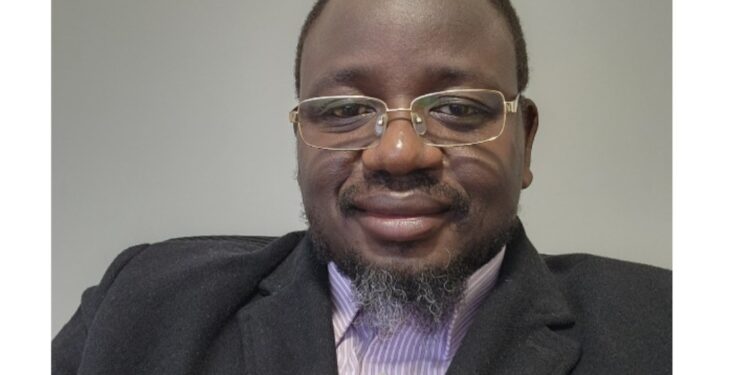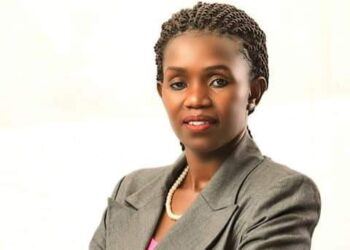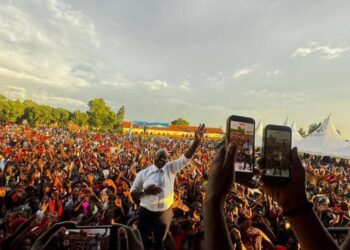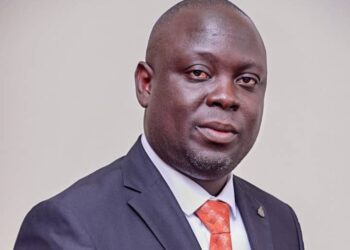President Yoweri Museveni’s recent public admission that corruption now thrives within State House itself sent shock waves across the nation and is a sobering and perilous moment in Uganda’s political history. Speaking with a rare tone of frustration and emotional sincerity, the head of state pronounced the government system as “dead,” revealing that corrupt practices and tendencies are happening “right in his compound,” sometimes without his knowledge, and often brought to his attention only by his trusted daughter, Ms. Natasha.
This acknowledgement not only exposes the depth of institutional degeneration but also underscores a painful reality millions of Ugandans have to live with every day: corruption is not simply a peripheral issue in Uganda — it has taken deep roots at the very heart of the state, the nucleus of country.
The President’s own words convey the enormity of the problem. If even the highest office in the land is not immune to bribery, extortion, and concealment, then what hope remains for ordinary millions of Ugandans who navigate a bloated and often predatory bureaucracy?
The fact that corruption can flourish unchecked in the very corridors of State House, where proximity to presidential power should serve as a deterrent, is deeply alarming and frightening. It suggests that accountability structures — both internal and external — have either collapsed or been broadly compromised by the very individuals entrusted to uphold them.
Recent scandals involving senior aides, members of the security agencies (fabricating terrorist threats), and State House correspondents paint a grim picture for the nation. From extortion rackets involving individuals seeking presidential ear, to classified leaks and political manipulation — the rot appears tremendous, systemic, well-orchestrated, not merely incidental.
Corruption and the derailment of poverty reduction
The implications of this systemic corruption on poverty reduction efforts are profound, and immense.
I was fortunate to study Uganda’s poverty reduction agenda from 1962 – 2010 during my PhD and post PhD levels. Uganda has been hailed as a posture child of neoliberal policy reform and poverty reduction success, unfortunately these efforts are effectively getting derailed.
For decades, Yoweri Museveni, and more broadly the NRM government has promoted a central agenda centered on poverty reduction, investing millions of dollars into programs like Entandikwa/egeunes, Bona bagaga wale/Abara kere, Universal Primary Education (UPE) and Universal Secondary Education (USE)/Asioma kere/bona basome, NAADS programs, Operation Wealth Creation (OWC), and more recently, Emyoga and PDM. Yet the tangible impact of these interventions have been in between, and mixed at best, largely because the resources meant for service delivery are systematically siphoned off through embezzlement, bribery, and political patronage.
Corruption distorts the allocation of public funds — projects are either poorly implemented or remain incomplete; medical supplies disappear before reaching clinics; agricultural inputs never get to the farmers; and education budgets are misappropriated, leaving classrooms overcrowded and teachers unpaid. As a consequence, the intended beneficiaries — millions of Ugandan’s rural poor, women, youth, and marginalized communities (NRM voting block), continue to languish in poverty, despite the country’s ambitious development plans.
In the recently concluded CEC NRM party campaigns and elections, after moving throughout the country, the speaker of the parliament of Uganda, could not believe the dilapidated state of the Uganda roads, despite trillions of shillings appropriated to roads each year.
A leadership struggling to reclaim control
What makes President Museveni’s recent remarks particularly distressing is the visible frustration of a leader grappling with the loss of control over his own system. His reference to being unaware of key administrative decisions speaks to a growing disconnect between the presidency and the bureaucracy that operates in its name.
While President Yoweri Museveni has historically projected an image of strong centralized command (Ssabasaja -winner of all wars), the present crisis reveals a more complex scenario— one where entrenched network of corruption operate with impunity and autonomy, even under the shadow of the nation’s highest office!
The President’s clarion call for tougher measures, including the denial of bail for corruption suspects, is reflective of a deeper urgency. Unfortunately, as critics and keen observers rightly point out, punitive measures alone will not succeed without systemic reform. The real challenge lies in restoring transparency, rebuilding institutions, and holding all public officials — regardless of rank or allegiance — accountable to the rule of law. The so called ‘cadre judges’ in the judiciary should rise to the occasion.
Public trust at a tipping Point
Ugandans are growing weary. For years, citizens have reported bribery demands at every level — from police checkpoints and counters to hospital wards, from land offices to tender committees, from job interviews to formal appointments and promotion. The belief that corruption is “just how the system works” has become dangerously normalized.
The President’s admission is a step in the right direction — a recognition that change cannot come from denial or silence.
However, citizens are watching closely, though helplessly and with resignment. They want more than statements; they want justice, reform, and above all, results.
The future of Uganda’s development and overall socioeconomic transformation, the watershed of Yoweri Museveni’s presidency hinges on this moment. Will the country confront corruption head-on, or will it retreat once more into political maneuvering and selective accountability? It depends on who asks, hears and answers.
Conclusion: a call for national reckoning
President Museveni’s honest reflection about the rot within State House is not just a personal lament; it is a national alarm bell. If corruption continues to fester unchecked, even the most well-intentioned poverty reduction interventions will effectively fail to deliver meaningful impact.
Crushing corruption is no longer just about protecting national wealth — it is about restoring the soul of the state. It is about making government work for the people again. It is about ensuring that a child in Karamoja, a farmer in Luwero, a health worker in Arua, a primary teacher in Akadot primary school or a cattle trader in Isingiro, can access basic services without having to pay a bribe (Akantu).
This is the fight The president and Uganda must now take up — not just in speeches, but in action.
About the Author:
Dr. Samuel B. Ariong is a lecturer, researcher, and development policy scholar with a PhD. His work focuses on development, and poverty reduction, and he is a Model Farmer in rural Eastern Uganda.
Do you have a story in your community or an opinion to share with us: Email us at editorial@watchdoguganda.com














